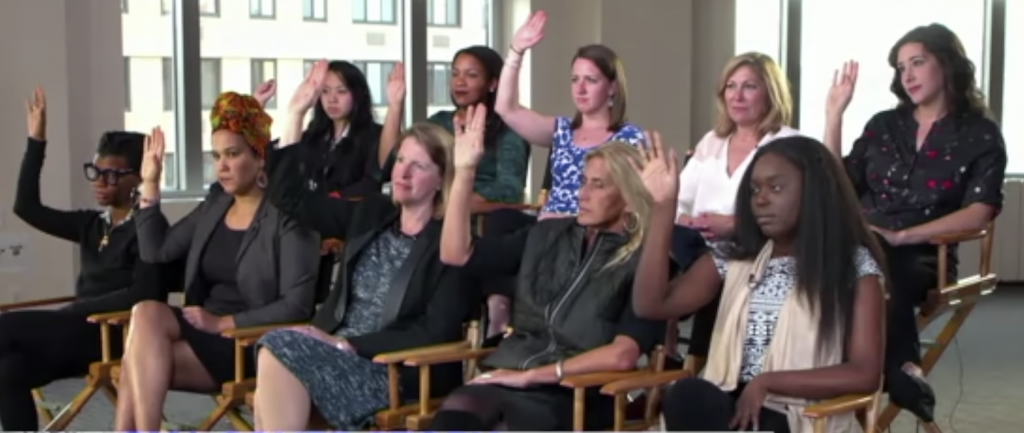With rampant sexual imagery found in nearly every form of media, it can often seem impossible for a discerning Catholic parent to protect their children from a distorted view of sexuality. Yet Don Johnson, a former Protestant evangelical turned Catholic convert who has run Don Johnson Ministries for the past 25 years in an attempt to harness media for positive messages, decided to take a stand with his new documentary “Unprotected.”
Starting with a heartbreaking testimonial from an obscured young woman named “Alice” who speaks firsthand about her experiences navigating the dominant “hookup culture” found among millennials and the dating world, Johnson sought to trace the history of the sexual revolution.
The result is a fast-paced, riveting and highly informative look at the surprising forces that came together to damage society’s view of sexuality, while also attempting to offer hope and a way to restore sanctity and sanity to society.
“I had a couple of daughters who became teenagers at the same time I was working on my prior film,” says Johnson, referring to his 2015 documentary “Convinced,” which covered his faith journey. “This toxic sludge of a culture was way in over my head. My grandmother didn't have to do with constant sexualization of teenage girls. I looked into how it all developed historically and I realized it's a great plotline.”
Indeed, Johnson leads viewers through a disturbingly tangled web that ties together different, and often wildly competing, strands of feminism. Along the way, he interviews numerous prominent Catholic scholars, speakers and researchers, including Dr. Benjamin Wiker of Franciscan University, Theology of the Body expert Christopher West, Catholic Answers host Patrick Coffin and Catholic-radio host Jennifer Fulwiler.
Weaving it all together, Johnson shows that the destructive sexual revolution and its hypersexualization of society stemmed from the advent of the birth control pill in 1960. Widespread birth control had long been the goal of Planned Parenthood founder Margaret Sanger, who had hoped to use unfettered sexuality as a means of “unshackling women from family.”
Sanger regarded the Catholic Church with disdain because she saw the Church as the main bulwark against contraception, particularly after the Anglican Church became the first Christian church to accept contraception in 1930, and the other mainline denominations had all followed suit over the next decade. Fellow feminist leader Betty Friedan (author of “The Feminist Mystique”) regarded Sanger’s loose sexual mores with contempt but believed that helping women avoid pregnancy would improve their chances in the workforce.
Cosmopolitan magazine founder Helen Gurley Brown is revealed by Johnson to be the third key member of the amoral feminist triumvirate. Her magazine essentially became a guidebook to living a promiscuous lifestyle, which a former writer for the publication reveals to Johnson was riddled with completely fictional stories designed to push that agenda.
Yet “Unprotected” lays out in stark terms the facts about how women were not made happier by the revolution’s goals. Rather, it has led to documented epidemics in stress levels, divorce and abortion — while delayed motherhood also is a prime factor in women having fertility issues. One of the most shocking stats revealed is from Planned Parenthood’s own research organization, the Guttmacher Institute, which admits that there is a 70 percent chance of contraception failing during a decade of use.
“I was surprised at how certain cultural currents all came together, because I didn't realize how much they intertwined,” says Johnson, who also hosts a program on Orange County Catholic Radio. “The Pill was a unifying force for that whole feminist movement and really drove it. It’s shocking to see how much propaganda was used and how many lies were told. I knew they shaded the truth, but the fact that overt propaganda was used and is continuing to be foisted on the culture was pretty shocking to me.”
After recounting the feminist movement’s morally corrupt history, Johnson turns the focus to the “hook-up” culture on high school and college campuses, in which many students have lost any idea of how to engage in a traditional dating relationship. While he is careful throughout to use discreetly blurred imagery to convey even revealing magazine covers, Johnson explores “pornification of the culture at large that ultimately leads to the literal objectification of women in sex-bots, and the second act closes with despair at the fact that the sexual revolution has basically done away with women.”
But it is in the film’s final stretch that Johnson shows that the way towards hope for society comes through the Catholic Church and its teachings against contraception and for the sanctity of marriage. Called “The Revolution of Love,” this segment gives the history of John Paul II and his Theology of the Body as told by women who have experienced redemption through finding it.
“We talk about the dignity of women and the value of parenthood, etc. as well as answer some common questions people have regarding natural family planning,” Johnson notes. “And ‘Alice,’ the girl who opened the movie, closes it as well, telling how she escaped from the hook-up culture and found true love, dignity and purpose.
“There's a whole countercultural movement being led by the refugees of the sexual revolution,” Johnson concludes. “Kids of divorce, those whose siblings were aborted, and young adults sick of having sexual objectification foisted upon them are finding the teachings of the Church highly attractive, a beacon of hope that provides meaning and dignity to their lives. There's hope and the younger generation will heave culture spark the other way.”
To learn more about “Unprotected,” find screenings or arrange a screening for your parish or group, visit unprotectedmovie.com.
Start your day with Always Forward, our award-winning e-newsletter. Get this smart, handpicked selection of the day’s top news, analysis and opinion, delivered to your inbox. Sign up absolutely free today!

